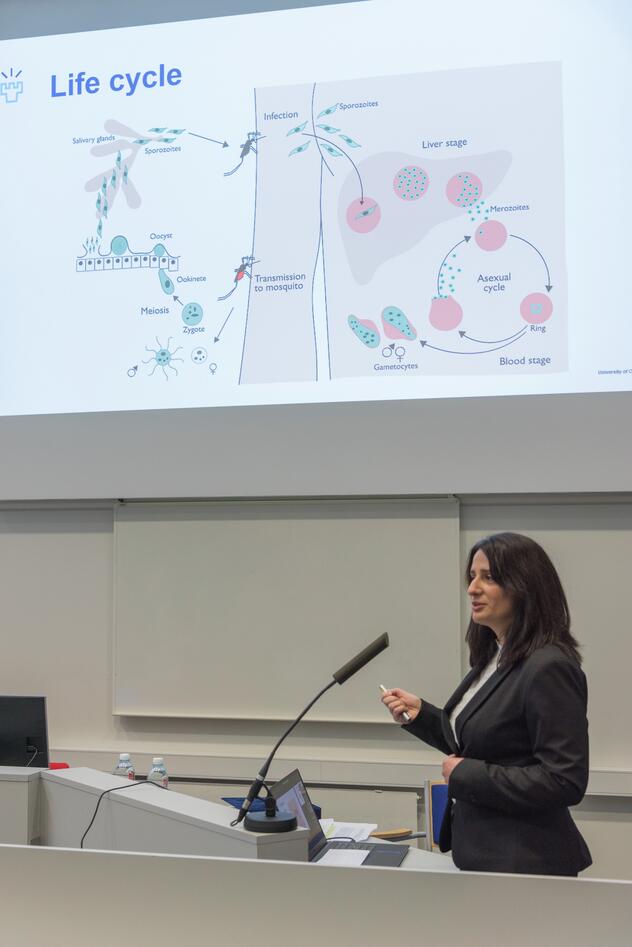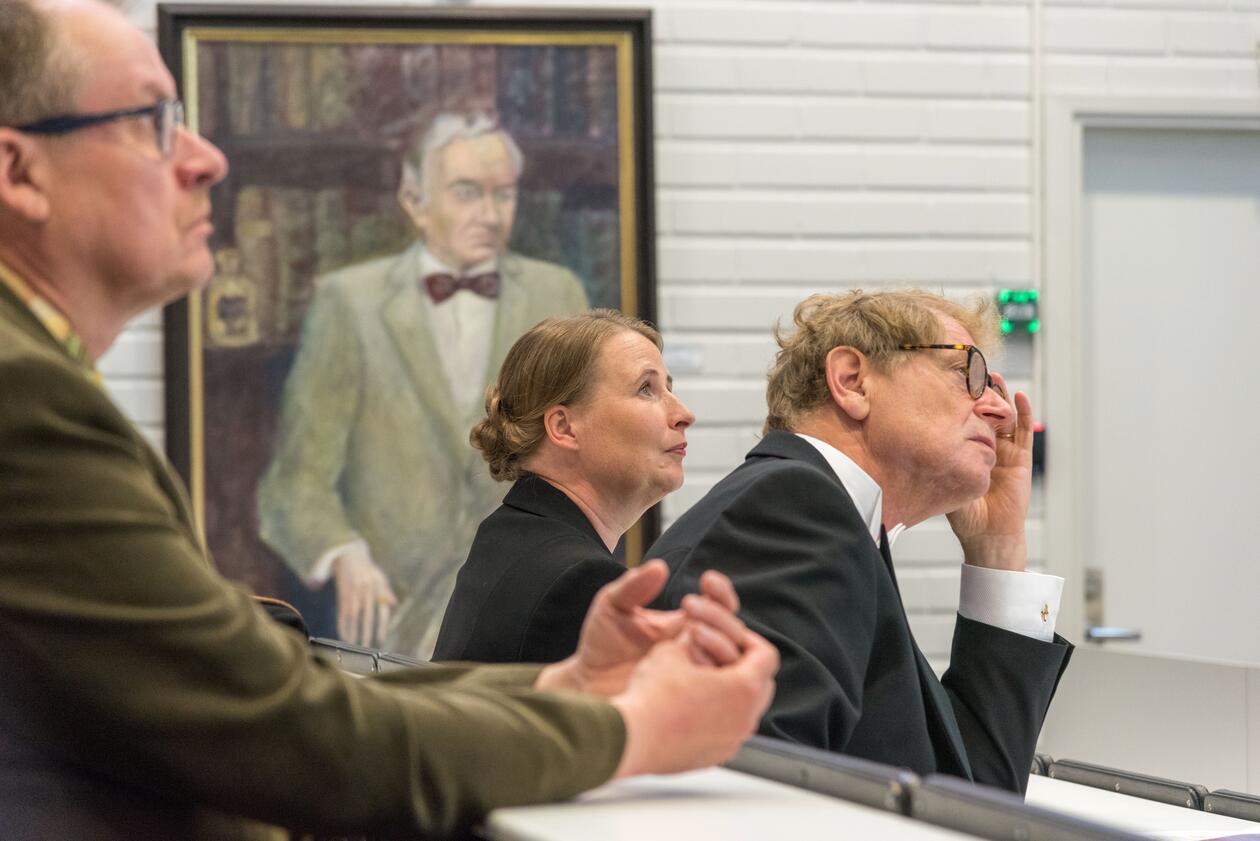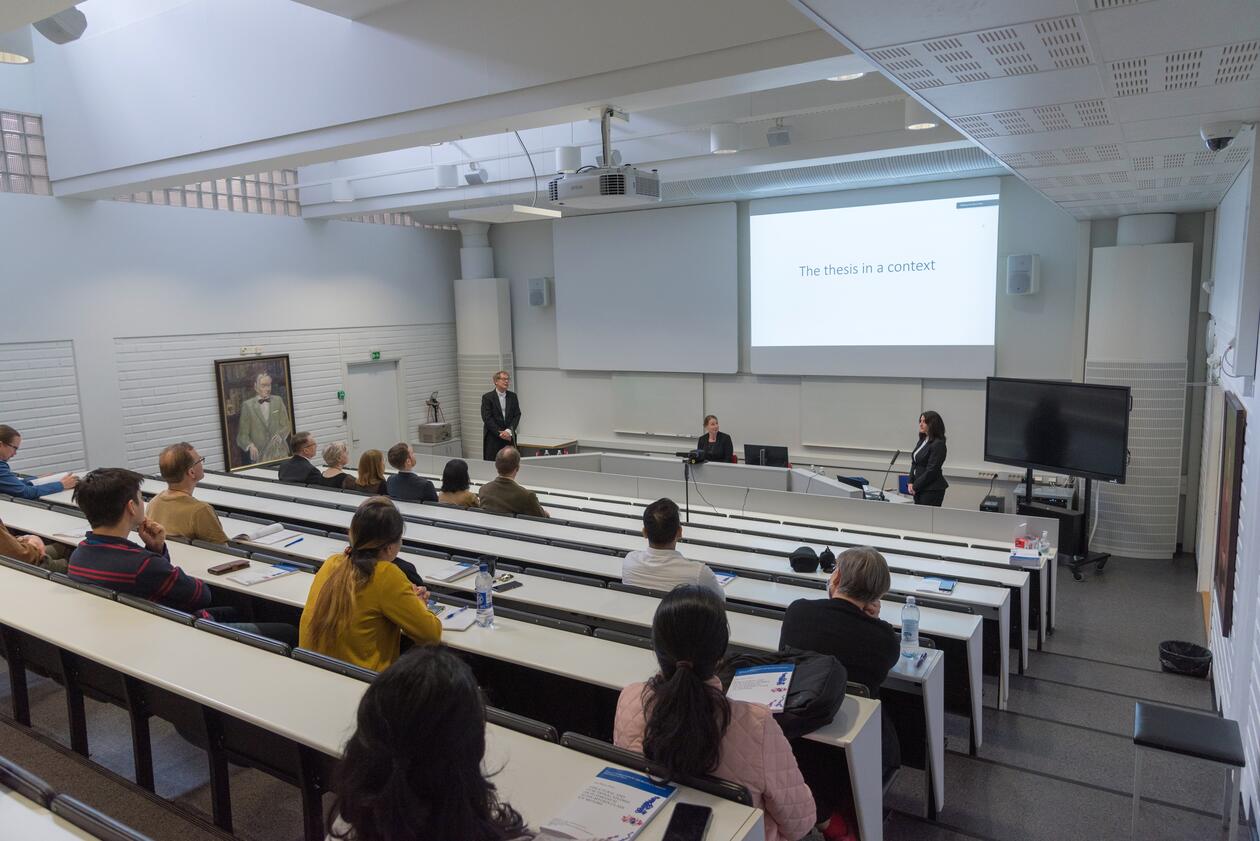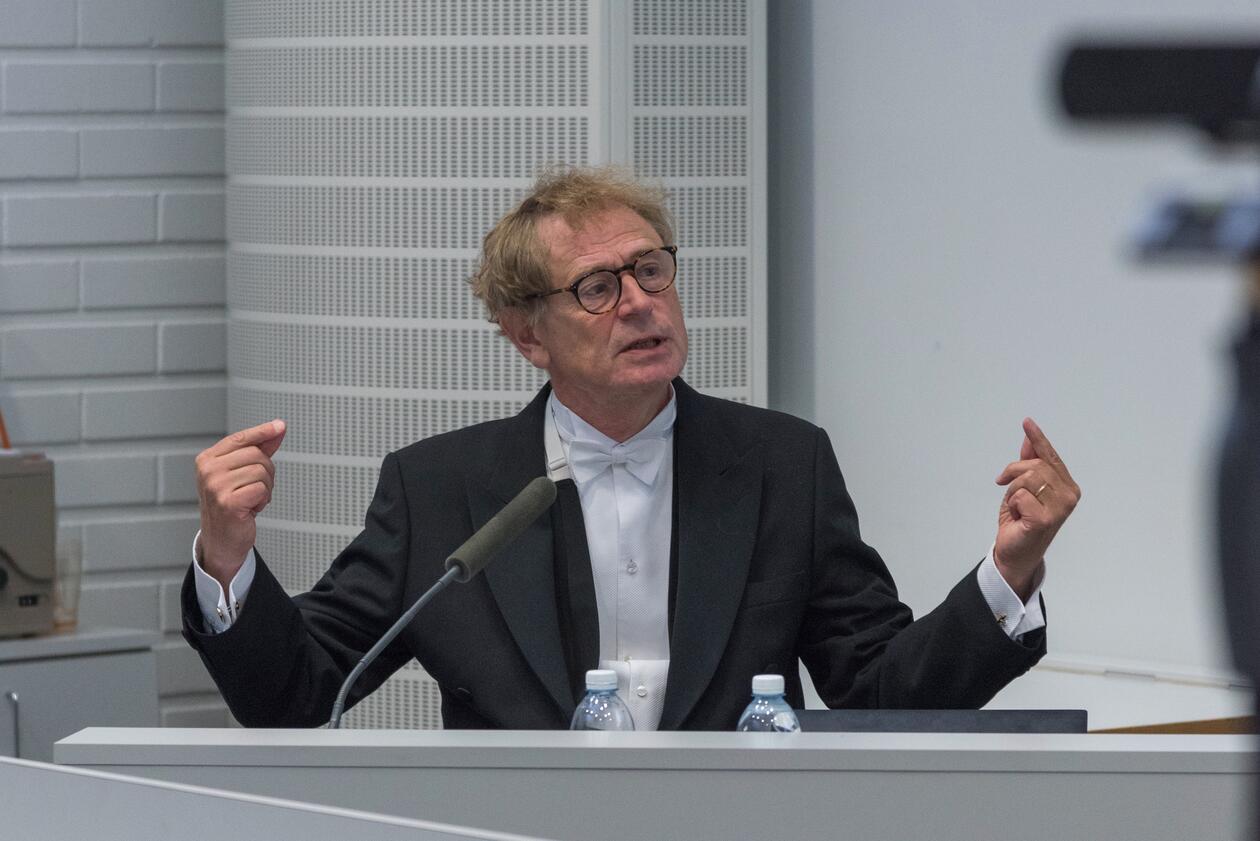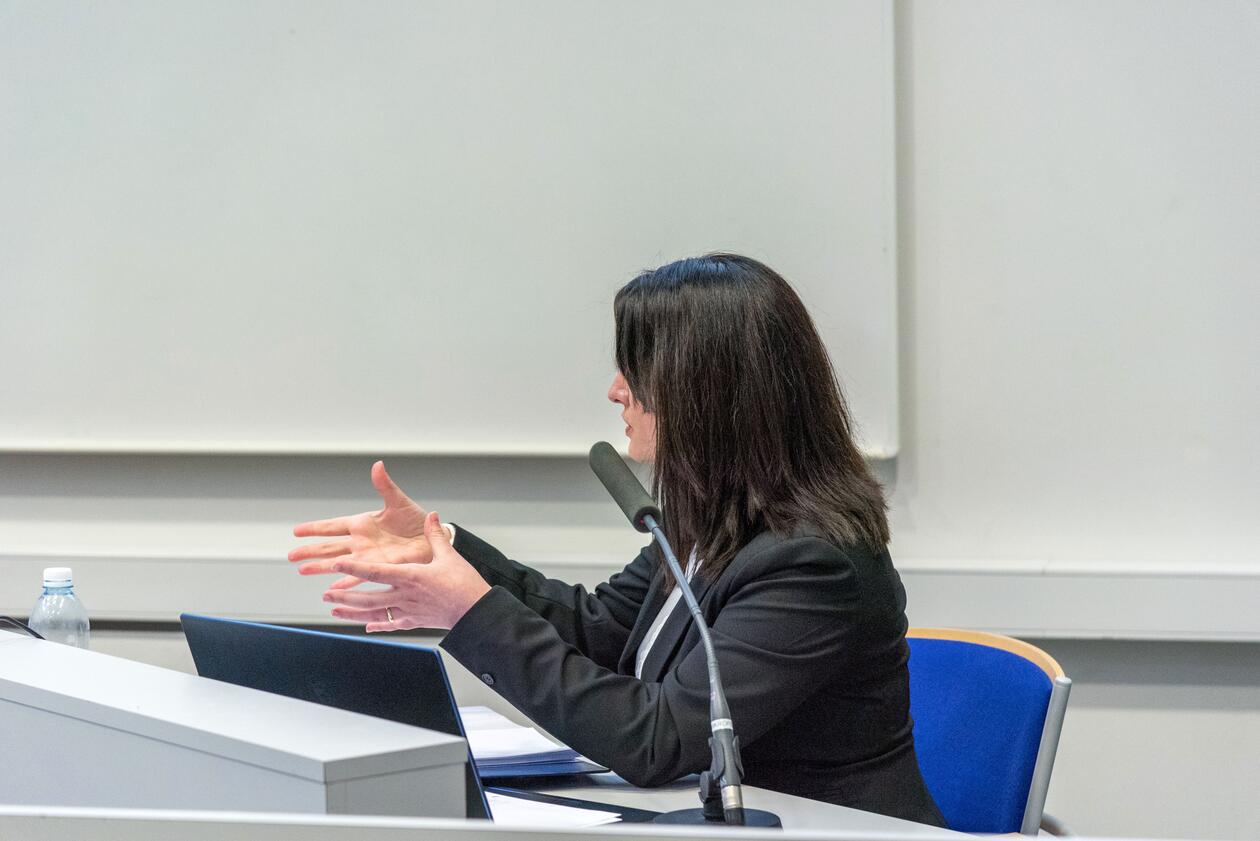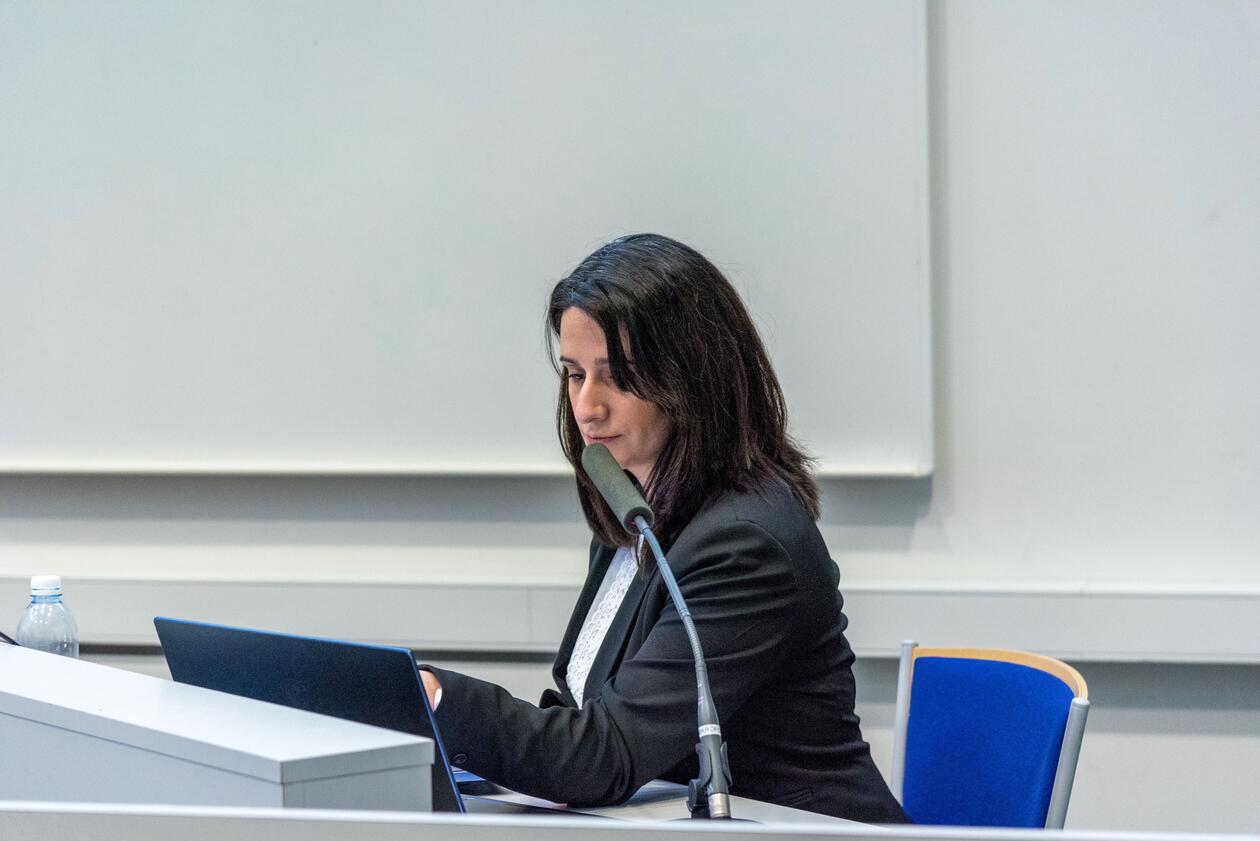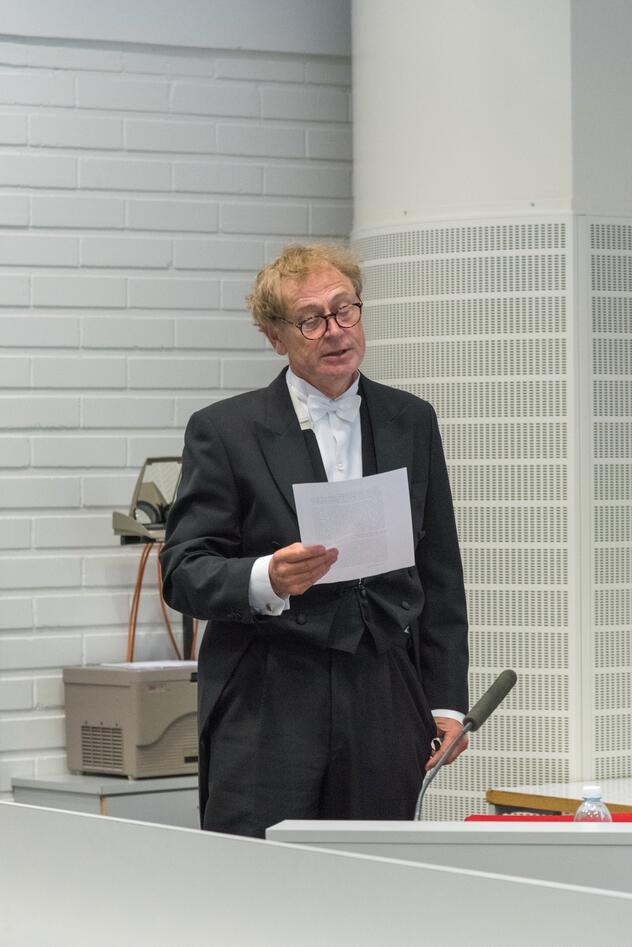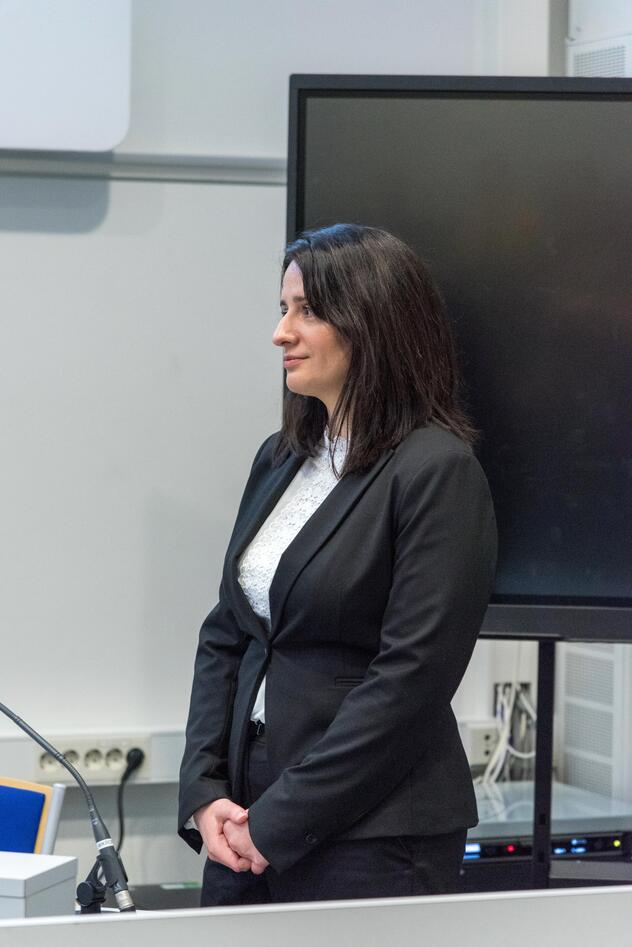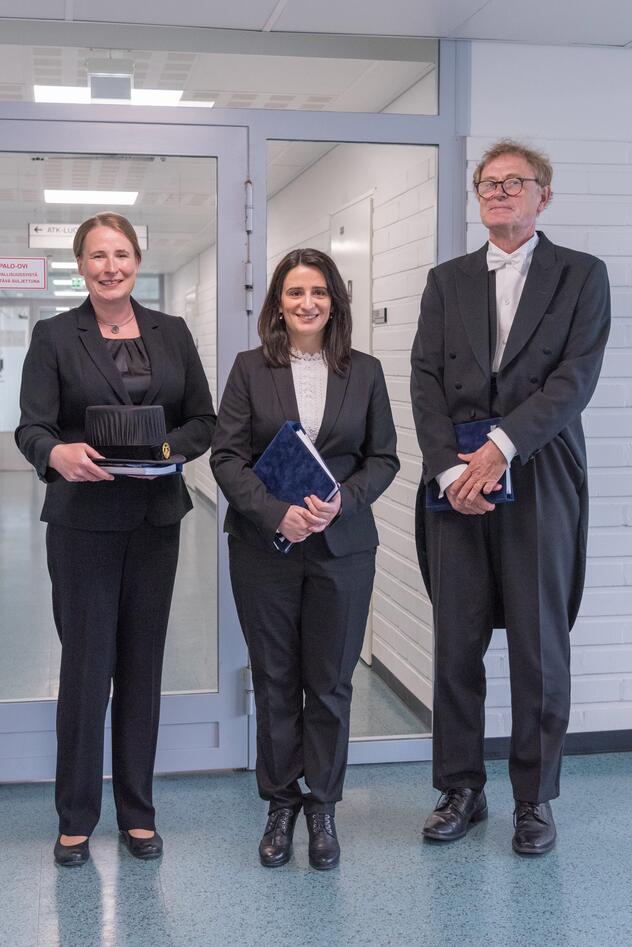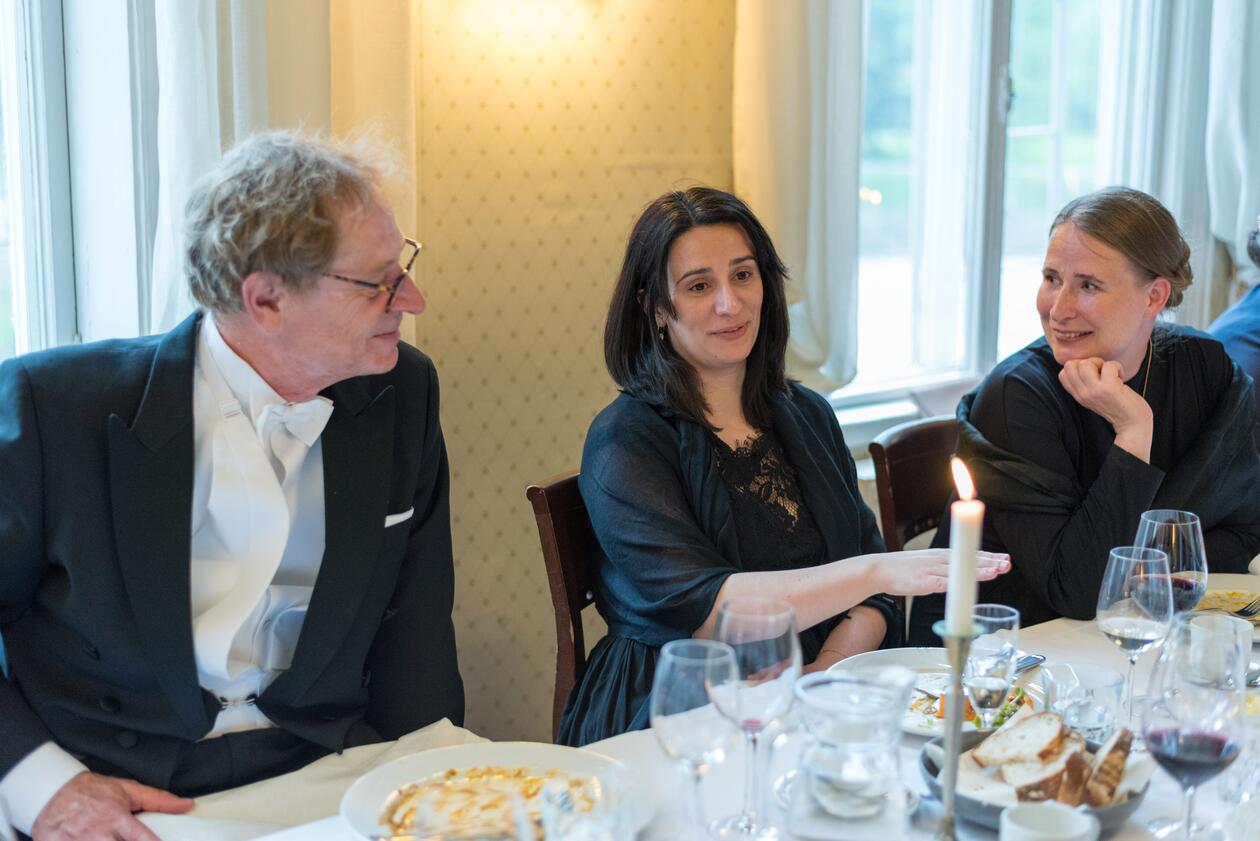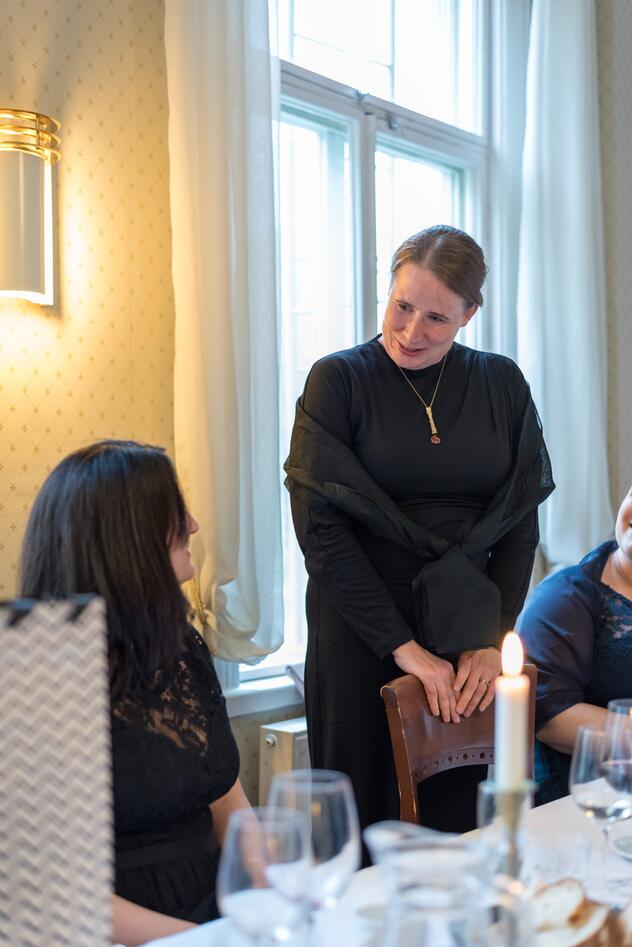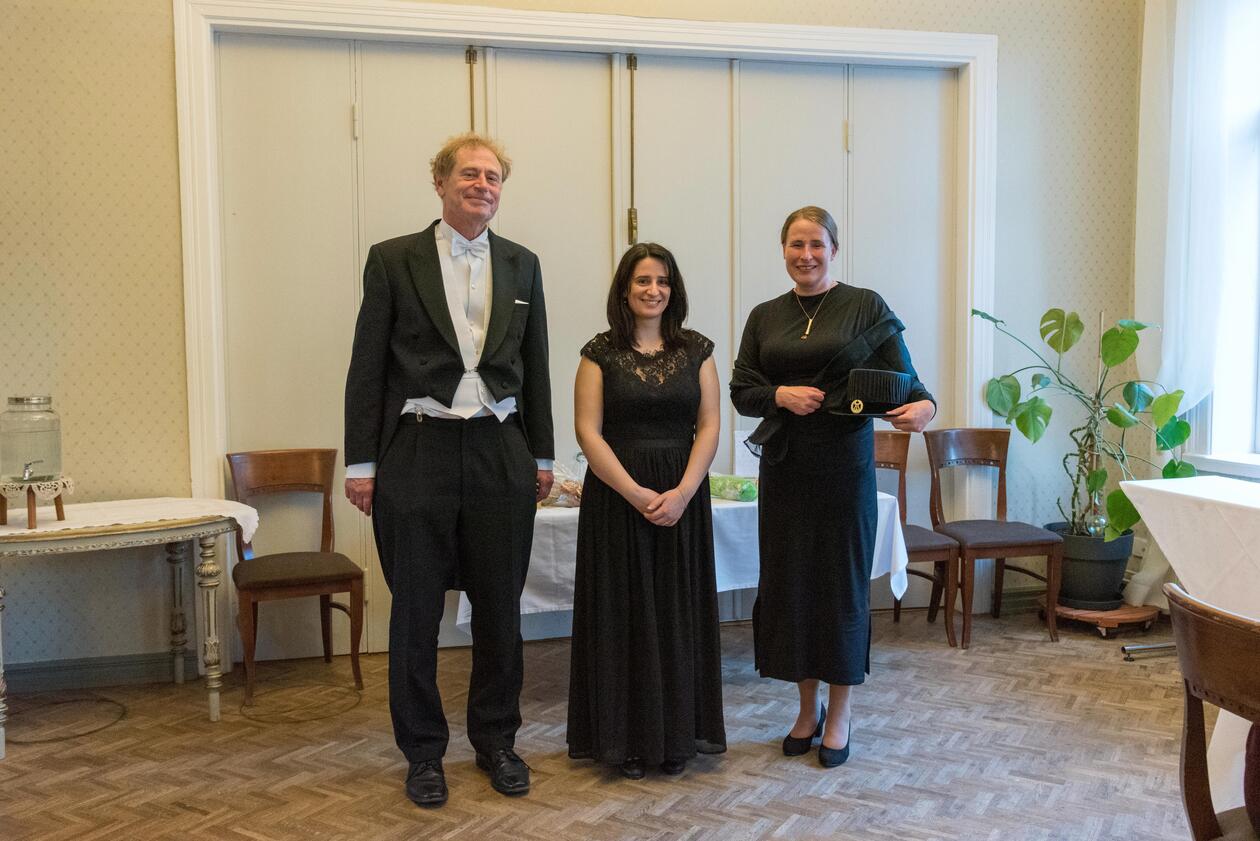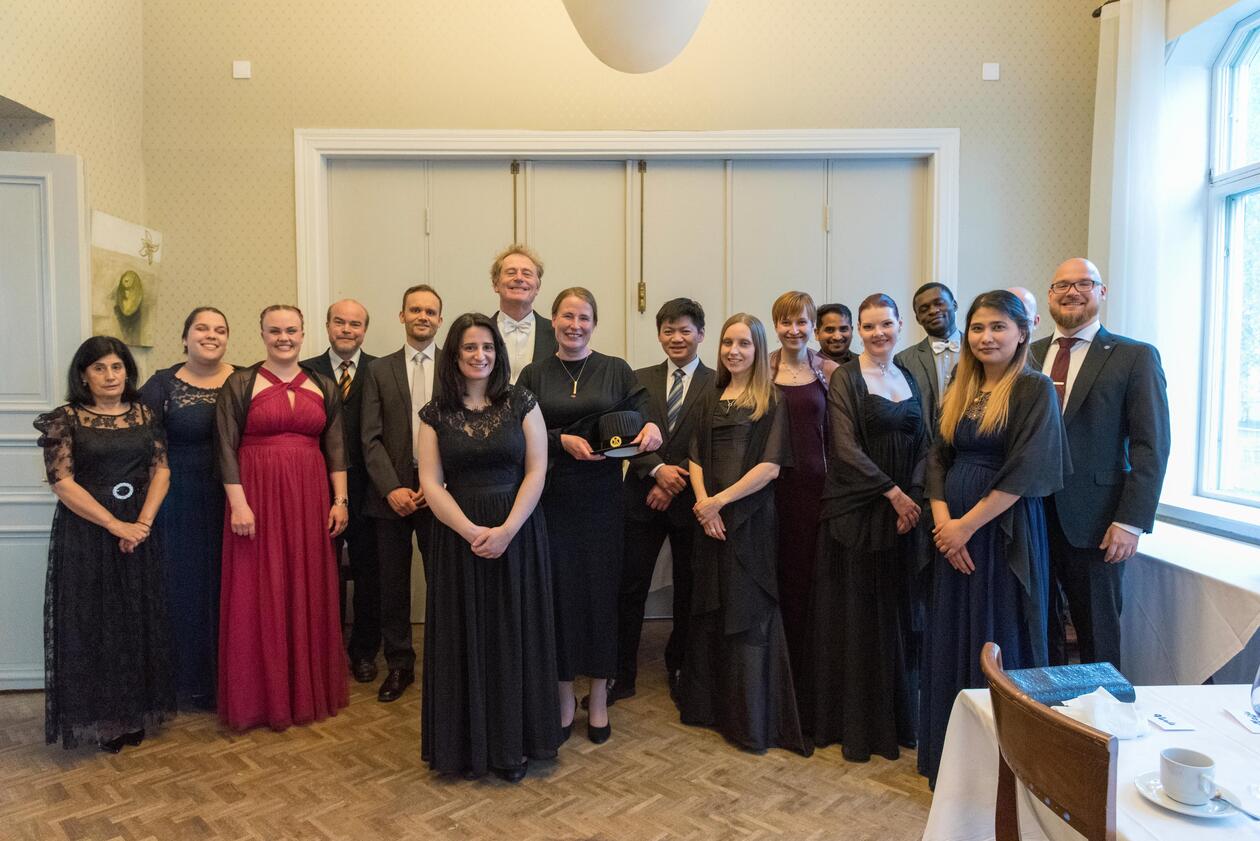Isa defended her PhD - congratulations Dr. Pires!
On Wednesday June 1st, Isa defended her PhD at the University of Oulu. The opponent was Professor Alf Månsson from the Linnaeus University, Kalmar, Sweden. We all could enjoy an interesting dialogue on myosins and motility, and Isa rocked all the way. Thanks to everyone involved and huge congratulations to Dr. Isa Pires!

Main content
Enjoy some moments from the big day in form of some of the many pictures taken by Ábris Bendes!
Studies on malaria parasite motility
Malaria, a disease caused by parasites, is responsible for almost half a million deaths worldwide every year. For the parasite to survive, it requires motility. This work investigated the biochemical and structural properties of motor proteins called myosins and other proteins involved in the parasite molecular motor machinery. The major findings of this work were that: (i) parasite-specific chaperones and myosin light chains are essential for myosin stability and function; (ii) myosin light chains are naturally extended proteins and their interactions with other motor complex proteins are difficult to reconstitute in vitro; (iii) parasite myosins have degenerated binding sites to allow for redundant myosin light chain binding; (iv) at least one of the motor complex proteins is a potential target for drug discovery; and (v) a new actin filament stabilizing protein was described. Altogether, this work has shed light on several proteins involved in the malaria parasite's ability to move and invade human cells.
(https://www.oulu.fi/en/theses/structural-and-functional-studies-plasmodi...)
